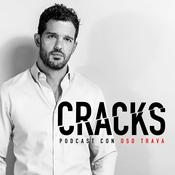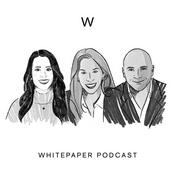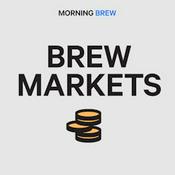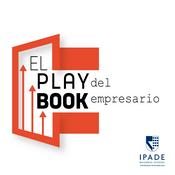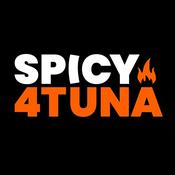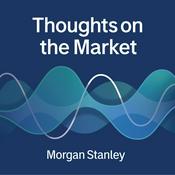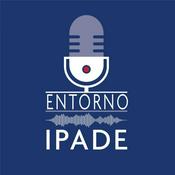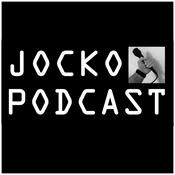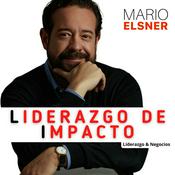132 episodios
- In this compelling episode of Beyond the Buildings, host Maiclaire Bolton Smith delves into the transformative impact of AI on the property market, a conversation featuring Cotality's Chief Data and Analytics Officer, John Rogers. As AI redefines home buying by swiftly recalibrating prices and financing, the episode explores the critical balance between technological advancement and ethical responsibility. John emphasizes the necessity of trust within this new landscape, highlighting the importance of explainable models and human oversight. The discussion reveals how predictive tools can expand opportunities while addressing the industry's obligation to avoid bias and exclusion. Tune in as we examine the evolving relationship between data-driven insights and the human element in property decision-making, shedding light on how trust is becoming the new currency in an AI-driven market.
- The year 2025 was marked by stubbornly high interest rates and persistent supply challenges across the globe. However, not all markets moved in the same direction.
- The U.S. market generally cooled off, with price growth slowing down and even falling in some areas.
- Australia saw the housing market grow, fueled by three central bank rate cuts that helped buoy the market.
- Still, unaffordability remains a barrier restricting homeownership access to homeownership for many.
Links:
Cotality Insights - https://www.cotality.com/insights - 2025 saw a variety of legislative proposals aimed at thawing the U.S. housing market and helping relieve persistent unaffordability.
- Ideas like 50-year mortgage terms and portable loans target affordability and the lock-in effect, but face hurdles regarding high interest costs and secondary market feasibility.
- The ROAD to Housing bill and light-touch density zoning aim to incrementally boost inventory by incentivizing “missing middle" development.
- Escalating natural disaster frequency is intersecting with a shift toward state-based aid, threatening housing resilience and stability.
Links:
Cotality Insights
https://www.cotality.com/insights
Cotality home price indexes
https://www.cotality.com/products/hpi-and-hpi-forecasts - Environmental risks are accelerating in ways the housing market can’t ignore. At the same time affordability pressures and insurance challenges are reshaping where and how Americans can live.
- Natural disasters are starting to influence people’s choice of home. Part of it is safety. A lot of it is price. Still, awareness has not yet tipped the scales, and people continue to move to these popular, but risky, regions.
- There are signals that people are shifting where they're migrating to. Just look at Florida where the number of new arrivals has slowed in recent years.
- Investing in resilience measures before a disaster strikes can help ease the financial burden of a catastrophe. But how much depends on when — and where — you make that investment.
Links:
Cotality Insights
https://www.cotality.com/insights
Climate at Cotality
https://www.cotality.com/climate - - The NASA Jet Propulsion Laboratory-Cotality report, an 18-month effort, provides a structural risk assessment, projecting potential loss from perils over 100-years.
- Cotality and NASA used digital twins to model “what if” scenarios, turning data into actionable insights for planning and resilience.
- Property-level hazard assessments could become a standard practice for federal agencies and large institutions looking to proactively prepare their facilities for the changing environment.
Links:
Cotality Insights
https://www.cotality.com/insights
Climate at Cotality
https://www.cotality.com/climate
Más podcasts de Economía y empresa
Podcasts a la moda de Economía y empresa
Acerca de Beyond the Buildings
Get a new perspective on property. Host Maiclaire Bolton Smith, Vice President of Product Marketing at Cotality, goes in-depth with experts to understand how the property ecosystem is evolving, glean information on how to solve housing's greatest challenges, and see what's going to happen next.
Sitio web del podcastEscucha Beyond the Buildings, Libros para Emprendedores y muchos más podcasts de todo el mundo con la aplicación de radio.net
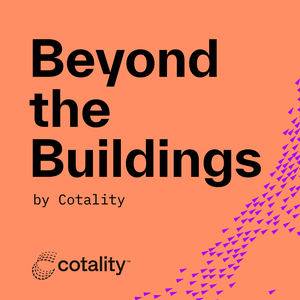
Descarga la app gratuita: radio.net
- Añadir radios y podcasts a favoritos
- Transmisión por Wi-Fi y Bluetooth
- Carplay & Android Auto compatible
- Muchas otras funciones de la app
Descarga la app gratuita: radio.net
- Añadir radios y podcasts a favoritos
- Transmisión por Wi-Fi y Bluetooth
- Carplay & Android Auto compatible
- Muchas otras funciones de la app


Beyond the Buildings
Escanea el código,
Descarga la app,
Escucha.
Descarga la app,
Escucha.







